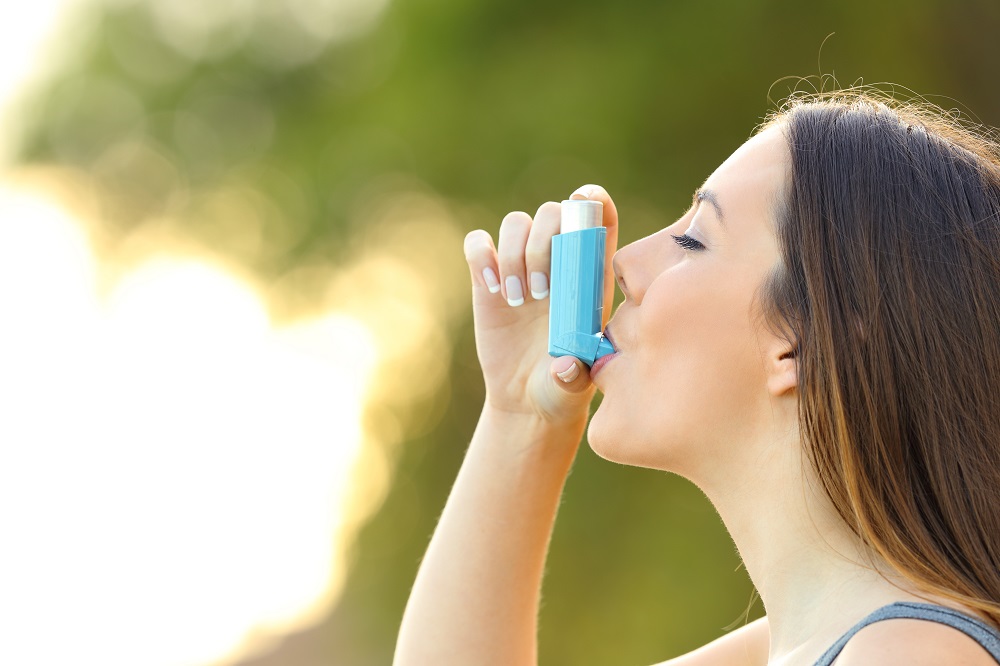If you or your child have ever suffered from sudden shortness of breath, tightness in the chest, or sudden wheezing and coughing, then you know how scary an asthma attach can be. The swelling and narrowing of the airways can bring panic when the air just won’t flow like it is supposed to. And if you suffer from allergic asthma, the triggers can be many and sudden. It’s important to know what might trigger an attack so you can work with your doctor to prevent one from happening.
Asthma triggers are allergens, irritants or conditions that will cause your asthma symptoms to worsen. When you know what your triggers are, you can better manage your symptoms, even if you can’t avoid all the triggers all the time. For a consultation with an asthma specialist in New York, contact Dr. Shukla today.
Roaches and Dust Mites
If various allergens are a trigger for you, then the dried droppings and remains of cockroaches can be a trigger. Tips to lesson your exposure include keeping food and garbage in closed containers, using bait or traps to eliminate cockroaches or using a spray to kill them (but make sure you stay out of the room until the odor is gone).
Dust mites are teeny tiny bugs you can’t even see that live in cloth and carpet. Pillows, mattresses, bedding, rugs and carpet can all be homes for these little pests. Tips to eliminate exposure include frequently dusting and vacuuming with HEPA filter, putting your mattress and pillows in dust proof covers, washing sheets and blankets in hot water, removing stuffed animals from your bed and washing them in hot water, and reducing the humidity in the room to between 30% and 50%.
Indoor Mold
Indoor mold can be a major asthma trigger, so it is important to keep moisture to a minimum in your house. Tips to lesson your exposure include fixing any leaky faucets or pipes, cleaning surfaces with a cleaner that contains bleach, eliminating moldy shower curtains, opening a window or using an exhaust fan when showering, and reducing the humidity to between 30% and 50%.
Pets
Pet dander, fur, urine and saliva are also major asthma triggers for a lot of people. Tips to lesson your exposure (if you don’t want to give up your family pet) include bathing your dog or cat weekly, having someone else change their litter box, no pets in the bedroom, keeping pets outside if possible, vacuuming often with a HEPA filter and using these same filters on your heating and air conditioning unit to remove dander from the air.
Pollen and Outdoor Mold
Allergy season can be brutal for asthma sufferers. If tree pollens, grass and weed pollens are an issue, here are a few tips to lesson your exposure. Do your best to keep the windows closed and use an air conditioner with a HEPA filter. If possible, you should stay indoors during the late morning and afternoon when pollen and mold spores are at their peak.
Other Triggers
Other triggers and asthma irritants include strong odors, sprays and smoke, including tobacco smoke. You should avoid exposure to perfume, hair spray and paint as well as wood burning stoves, kerosene heaters and fireplaces.
Colds and respiratory infections can also trigger an asthma attack. You can develop an asthma plan of attack with your healthcare provider, so you can better manage these triggers and stay healthy.
Food allergies can be another trigger. Foods containing sulfite can often trigger an attack for people. If you consume beer, wine, shrimp, dried fruit or processed potatoes, these might be increasing your symptoms. Make sure you get tested by your healthcare provider to see if a food allergy is a trigger for you.
Asthma Specialist in New York
If you or your child suffer from asthma, you need to seek the right professional help and talk to someone specializing in pulmonary issues. Dr. Mayank Shukla is the top asthma specialist in New York, specializing in pediatric care. Find out more about Dr. Shukla’s treatment options, patient reviews, insurance information and hospital affiliation by clicking here. Don’t suffer with asthma for another day.

